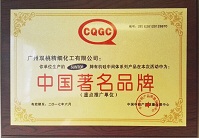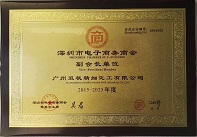
![]() E-mail: admin@gz-chemical.com
E-mail: admin@gz-chemical.com
Email us,best price and silane solutions for you!
Tel:+86 (20) 29035969

![]() E-mail: admin@gz-chemical.com
E-mail: admin@gz-chemical.com
Email us,best price and silane solutions for you!
Tel:+86 (20) 29035969


US ethanol market participants and trade groups Thursday decried the Brazilian governm
ent's Wednesday decision to levy a 20% tariff on ethanol imports above 600 million liters.
"We're very disappointed with this news," said Geoff Cooper, executive vice president at the
US' largest ethanol industry group the Renewable Fuels Association. "It felt like we had been
making progress in our discussions with Brazilian officials. We're not going to give up on
continuing the dialogue with the Brazilians about this decision and its implications for both of
our markets."
Brazil, the second largest ethanol producer in the world, began importing large volumes of
ethanol in 2016 as high sugar prices made the sweetener more attractive to sugarcane mills
than ethanol.
Through June, the US exported over 1.045 billion liters of ethanol to Brazil, according to US
Department of Agriculture data.
That could mean that any further exports to Brazil would be subject to the 20% tariff. But it
does not appear that exports from earlier this year above the 600 million liter level would be
affected by the tariff.
"We haven't heard any indication that this would be retroactive in nature," said Cooper. "Wha
t isn't clear is when it would become effective." The decision could be entered into Brazil's
official gazette within a few days, but whether the tariff would be in place immediately or the
gazette entry would set a future date was not specified by the government.
US traders have been hesitant to update their export models yet.
"I think with the arbitrage where it is, it will not be a problem," said a US source. "But if the arb
tilts back in favor of heavy exports from the USGC to Brazil, I think it will become a mess. Righ
t now it is just a band-aid to calm the flex plants in the northeast of Brazil and try to not
anger the US to the point that it starts some kind of a trade war."
With the tariff in place, ethanol prices in Brazil could climb and keep the arbitrage open
despite the 20% tariff. But the tariff adds a new hurdle to overcome when traders eye Brazil
for exports.
"We think Brazil will remain short of ethanol and will continue to import it from the US," said
Bruce Pickover, biofuels director at PIRA Energy Group, a unit of S&P Global Platts. "We don'
t see where else Brazil can get the ethanol they need. I think the tariff will just increase the
price of ethanol to consumers in the north and northeast region. It will help the producers in
the region which is the main purpose."
The North and Northeast regions of Brazil are naturally short on ethanol and rely on transfers
from the Center-South region, the largest ethanol producing region in the country. But since
the Center-South has produced less ethanol in favor of sugar, the North and Northeast have
had to rely on imports.
Sugarcane mills in Brazil had called for the tariff for months, saying imports from the US were
unfairly hurting domestic plants. A vote on the tariff was delayed three times since early May.
Unica, a sugarcane industry group in Brazil, praised the decision in an emailed statement.
"This measure helps to reduce the lack of equality between rules for marketing domestic and
imported ethanol, to reduce environment impacts -- as sugarcane ethanol has a better
environment footprint than imported corn ethanol -- and to keep economic benefits to the
entire ethanol industry in Brazil, which generates almost 1 million jobs."
Guangzhou Double Peach Fine Chemical Co.,Ltd
Address: No 3401 Huangpu East Road, Huangpu District, Guangzhou, China
Tel:+86 (20) 29035969 Fax:+86(20)29035979
Tel/Wechat/Whatsapp:0086 13826126978 admin@gz-chemical.com